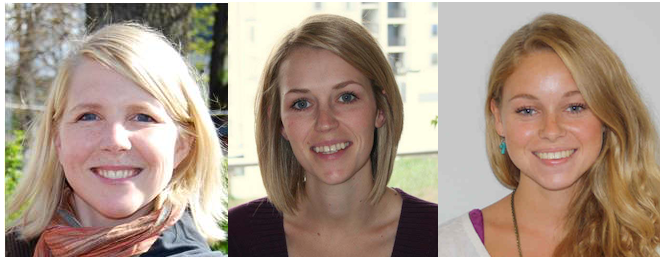The Syljuåsen Lab reveals mechanisms preventing replication stress

The Syljuåsen Lab at the Department of Radiation Biology, Institute for Cancer Research reports new basic knowledge about factors underlying replication stress in cancer cells.
Replication stress can drive cancer development and may also be exploited in therapy. Understanding the molecular mechanisms underlying replication stress is therefore important. Transcription-replication conflicts are a major source of replication stress. The new findings by Landsverk et al. suggest that proper dephosphorylation of RNA polymerase 2, the main mediator of the transcription of DNA into mRNA, is needed to prevent such conflicts.
The signaling cascades of replication stress and DNA damage responses are closely related. Landsverk et al. show that the WDR82/PNUTS-PP1 phosphatase complex, which dephosphorylates the carboxy terminal domain of RNA polymerase 2, prevents replication stress. WDR82/PNUTS-PP1 promotes degradation of RNA polymerase 2 on chromatin, thereby resulting in less conflicts with the replication machinery. Moreover, the WDR82/PNUTS-PP1 complex also suppresses activation of ATR (Landsverk et al 2019 and this study), a key component of DNA damage signaling cascades.
The results are published in Cell Reports. Helga B. Landsverk, Lise E. Sandquist and Lilli T.E. Bay are shared first authors. Helga B. Landsverk and Randi G. Syljuåsen are corresponding authors.
Links:
The Cell Reports publication:
WDR82/PNUTS-PP1 Prevents Transcription-Replication Conflicts by Promoting RNA Polymerase II Degradation on Chromatin
Helga B Landsverk, Lise E Sandquist, Lilli T E Bay, Barbara Steurer, Coen Campsteijn, Ole J B Landsverk, Jurgen A Marteijn, Eva Petermann, Laura Trinkle-Mulcahy, Randi G Syljuåsen
Cell Rep 2020 Dec 1;33(9):108469. doi: 10.1016/j.celrep.2020.108469.
PMID: 33264625
Group for Radiation Biology and DNA Damage Signaling, headed by Randi G. Syljuåsen
Department of Radiation Biology
